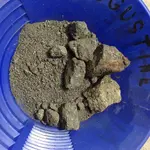Ryan
Travis was a known Criminal. He would not have been accepted in a Masonic lodge as a member. He would not have been employed as a police officer either. Perhaps some political appointment to keep the fruit farm in line. One thing for sure he was a bad ass.
Frank,
You are dead on. After the Civil War, those values and principles that define the Masonic Brotherhood and even the Texas Rangers begins to break down in the Tumlinson clan. John Jackson Tumlinson "Peg Leg" is the perfect example. I think that the soldiers in the Confederacy believed that a victory was possible and after sacrificing so much and walking away the loser, I think that it just devastated many of the men who remained in the South, those who struggled to assimilate. The men who did not emigrate to Brazil (some 10,000?) or Sonora (even with pardons) must have felt strangers in their own country. Peg Leg being one of them, was a bad ass for sure. But, he did ride with some remarkable men who knew Arizona intimately.
The Confederacy and today's Southern Arizona are historically tied to the mares tail.
On a side note, since my knowledge of firearms is limited to their use, do you have any idea what the composition of a Civil War period bullet/slug would be? I am thinking about the Tucson Lead Objects and wondering if they were made from munitions lead. Not a bad trick to play on the invading Yanks who may simply have missed finding it.
On another side note, do you know the history of the Holmes family? There is a Richard who served in the CSA from Texas but I have not confirmed the connection if one even exists. If this is the same man, or if Richard Holmes served in the Confederacy, then we start to have a pattern. As I said, I am not sure if its the same man. Perhaps you or someone else can help to resolve it either way.
"Arriving at" or born

?
[FONT=Arial,Helvetica][SIZE=-1]"
The Holmes' were among the earliest pioneers in the Arizona Territory beginning with Richard "Dick" Holmes' father, R.J. Holmes arriving at Fort Yuma, Arizona from Mississippi in 1847 (the presumed year of the Peralta mining party massacre). R.J. Holmes worked in the cattle business then and later in mining traveling to Canada and Alaska then back to Arizona. Richard "Dick" Holmes was born in 1865 in Arizona. The family name has remained in Arizona ever since." [/SIZE][/FONT]
Holmes, Richard
[h=2]18th Regiment, Texas Infantry (Ochiltree's)[/h] Overview: 18th Infantry Regiment was organized during the summer of 1862. Many of its members were from the towns of Rusk, Jefferson, Sulphur Springs, and Jacksonville. It was assigned to O. Young's and Waul's Brigade, Trans-Mississippi Department, and fought in Louisiana and Arkansas. The unit lost 10 killed, 40 wounded, and 4 missing at Bayou Bourbeau, took part in the operations against Banks' Red River Campaign, and was engaged at
Jenkins’ Ferry. Later it moved to Hempstead, Texas, and in May, 1865, disbanded. The field officers were Colonels Thomas R. Bonner, David B. Culberson, William H. King, William B. Ochiltree, John R. Watson, and Joseph G.W. Wood; and Major Matthew A. Gaston.




 ?
?
